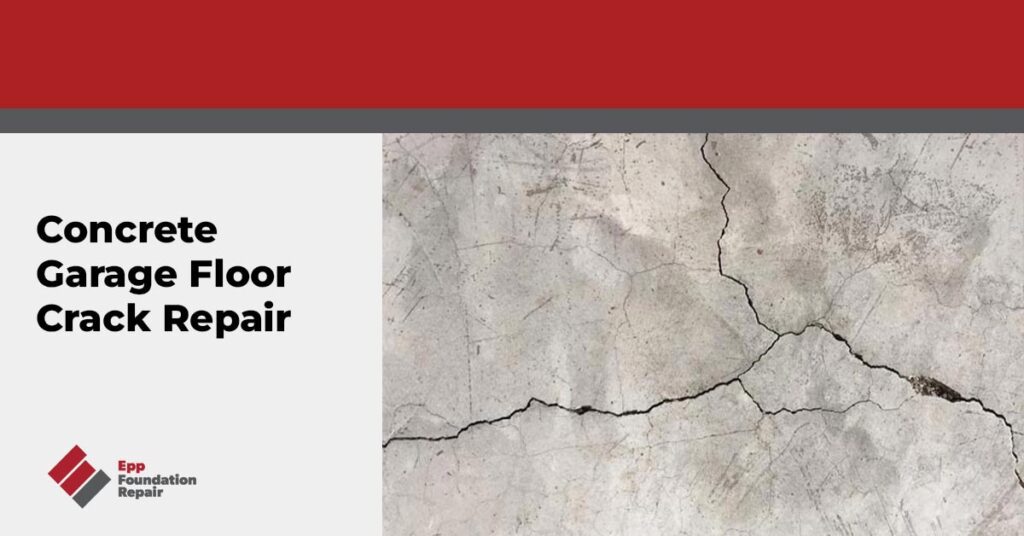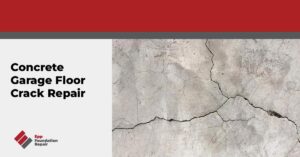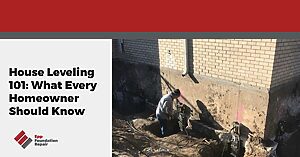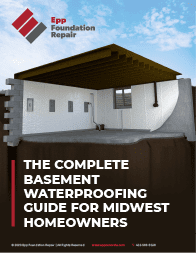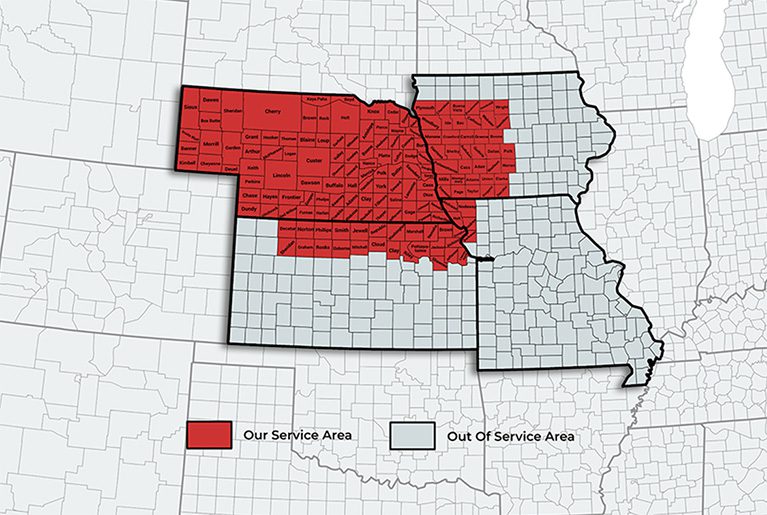Are you looking for information about concrete garage floor crack repair? If so, stick around because that’s what we’re going to cover in this short article. We’re going to talk about why concrete garage floors crack, the different types of garage floor cracks, repair options for cracks in a garage floor, and more.
Types Of Concrete Garage Floor Cracks
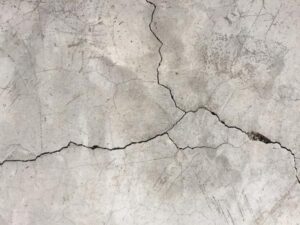
Certain types of cracks in a garage floor are pretty common, even to be expected. Fortunately, these types of garage floor cracks are usually harmless and shouldn’t cause you to lose sleep. We call these non-structural cracks. However, there are other types of garage floor cracks you should worry about. We refer to these as structural cracks.
Structural Vs. Non-Structural Garage Floor Cracks
Structural garage floor cracks are cracks that affect the structural integrity of the garage. Non-structural cracks in a garage floor are just ugly.
Structural cracks are large cracks that often go across the garage floor. These cracks are serious and need to be looked at by a foundation repair contractor right away.
Non-structural cracks are usually hairline and caused by shrinkage during the concrete curing process. They’re unsightly, but they aren’t going to threaten your garage’s structural integrity. It’s usually a good idea to seal them, though, to prevent water seepage, which can happen.
Structural and non-structural cracks have different repair solutions.
Why Concrete Garage Floors Crack?
The two most common causes of garage floor cracks are shrinkage during the concrete curing process (non-structural crack) and foundation settlement (structural crack).
- Shrinkage – This happens during the concrete curing process. It’s pretty common and usually nothing to worry about. These cracks are unattractive but don’t threaten the garage’s structural integrity.
- Differential settlement – Differential settlement is when a foundation settles into the soil unevenly. Causes include expansive soil, erosion-prone soil, and tree roots ‘’drinking’’ water from the soil. Differential settlement puts a lot of stress on a foundation and can lead to serious structural damage and costly repairs. A crack in a garage floor caused by differential settlement needs immediate attention from a professional.
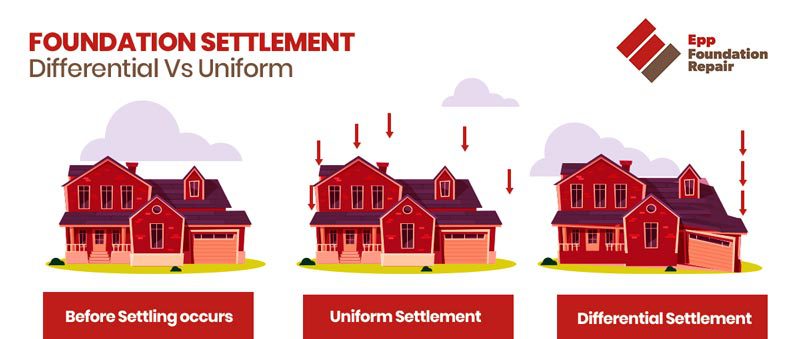
Concrete Garage Floor Crack Repair
The correct garage floor crack repair solution depends on whether the crack is structural or non-structural.
Garage Floor Crack Repair For Non-Structural Cracks
Epoxy or polyurethane crack injection is a common garage floor crack repair solution for non-structural cracks caused by shrinkage. Both form an extremely strong bond and prevent water intrusion through the crack.
Garage Floor Crack Repair For Structural Cracks
A structural crack in your garage floor caused by differential settlement is probably going to require a foundation repair solution called underpinning. This involves using piers to extend the garage’s foundation down to load-bearing soil. Once the piers are in place, the foundation is raised, and the cracks close. Usually, the cracks will also be sealed to prevent water seepage.
However, this isn’t enough. You also need to find the cause of the differential settlement and correct that. For example, was the differential settlement caused by poor drainage around the foundation? If so, that will need to be corrected via a drain tile system, regrading your yard, installing downspout extensions or an underground downspout, etc.
Signs a Garage Floor Crack Is Structural
The most common signs a garage floor crack is structural (i.e., serious) are the following:
- The crack is large, not hairline.
- The crack might stretch all the way across the floor.
- One side of the crack might be higher than the other.
Most of the time, a serious crack will look serious. In other words, you’ll just know. If you see a crack like this, contact a foundation repair contractor right away and schedule an appointment. Foundation damage worsens over time, and if you don’t repair it immediately, you’ll pay more for the repair later.
How To Prevent Foundation Problems?
Since most foundation problems (including problems that cause structural cracks in a garage floor) are caused by water, the best way to help prevent trouble is to control groundwater around the garage’s foundation. In other words, you need to do what you can to ensure the soil around the foundation doesn’t get saturated with water that can’t drain off. Here are some ways to do that:
- Regrade the yard around your garage’s foundation – This will stop moisture in the soil from draining toward the garage and then soaking into the soil.
- Clean your gutters regularly – If your gutters are chock full of dead leaves, water could overflow and run down the side of your garage, soaking the soil around the foundation.
- Install downspout extensions – This will channel runoff away from the foundation before being released. Extensions are inexpensive and easy to install.
- Install an underground downspout and pop-up emitter – Runoff flows into the underground downspout and toward the pop-up emitter, usually in your yard several feet from the foundation. Once the pop-up emitter is full, it pops up and ejects the water away from the foundation.
- Keep flowers, shrubs, and other types of vegetation away from your foundation – They may look nice next to your house, but you don’t want to give yourself a reason to add water to the ground around the foundation.
- Install a drain tile system – If you want to keep the soil around your home’s foundation dry, nothing beats a drain tile system. For more information, see How Does A Drain Tile System Work?
If you need garage floor crack repair, contact us today. We serve areas in Nebraska, Iowa, Kansas, and Missouri.

